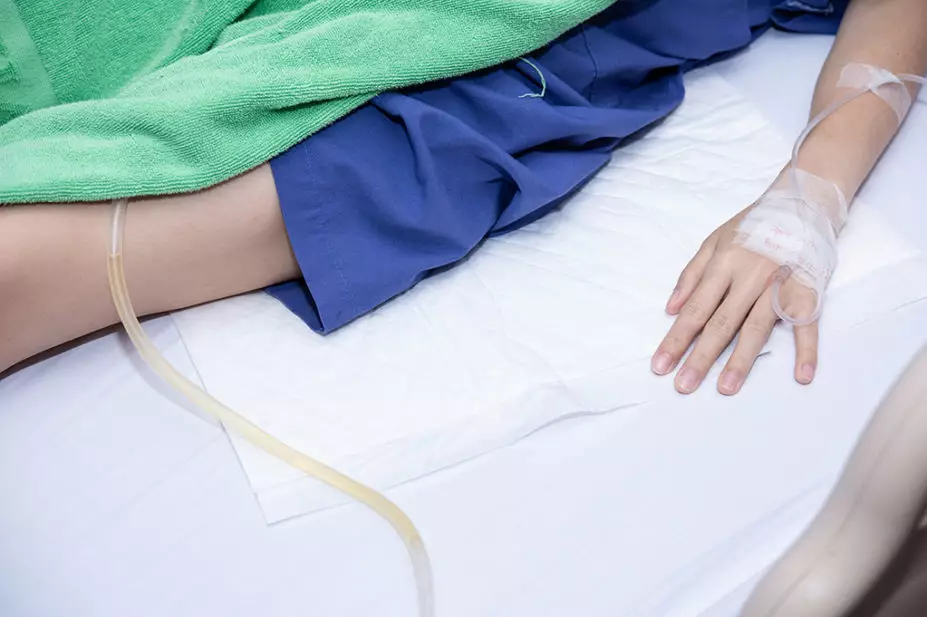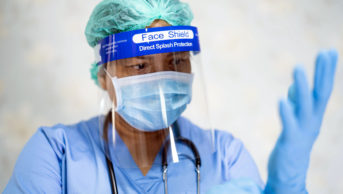
Shutterstock.com
A project set up to identify and provide more pharmacist support to patients with acute kidney injury (AKI) has identified that 74% of patients required pharmacist intervention to cut the risk of medicines-related harm.
The pharmacy team at Wrexham Maelor Hospital in North Wales trialled the use of Information Reporting Intelligence System (IRIS) software, which allows pharmacists to generate daily reports to identify and locate patients with AKI for a timelier pharmacist review, and linked it with the Welsh Clinical Portal — a digital patient record accessible across hospitals and health boards in Wales.
By doing so, the team was able to identify patients with AKI in real time as they were admitted to hospital. The AKI report was run each morning during the 19-day pilot and patients’ medicines were then reviewed by a pharmacist on the same day.
According to a press release issued by the Betsi Cadwaladr University Health Board on 13 January 2022, 37 (74%) of the 50 patients flagged by the software during the 19-day pilot required pharmacist intervention to reduce the risk of medication-related harm.
The pilot, which took place in January 2021, led to the team being awarded the ‘Digital Impact Award’ on 2 December 2021 at the MediWales Innovation Awards 2021, which recognises and showcases the achievements in the life science sector in Wales.
The team said that the project showed the potential to improve outcomes in patients with AKI by reducing the time from admission to medication review, particularly as it ran during a time of heightened winter pressures.
Research has shown that patients with AKI are linked with high death rates, with 20% of patients reported to die during admission to hospital and many others at risk of chronic kidney disease and increased length of stay.
Sheila Doyle, medical lead pharmacist at Wrexham Maelor Hospital, said: “Improved outcomes were monitored via number and severity grading of pharmacist interventions,” adding that the team had calculated a £4,803 cost avoidance per day from pharmacist interventions.
“Any patients whose creatinine exceeds the AKI diagnostic criteria set out in [the National Institute for Health and Care Excellence’s acute kidney injury guideline] — e.g. a rise in serum creatinine of 26 micromol/L or greater within 48 hours — are flagged and fed through to IRIS to generate a real time e-report available to print,” she said.
“This means that at a touch of a button, we have every single suspected [case of] AKI in primary and secondary care reported in real time across the health board. We can then filter this to location, i.e. Wrexham Maelor Hospital, and then to area, e.g. emergency department.”
Patients flagged by the software would be reviewed by a pharmacist, with interventions around prescribing and deprescribing made in line with NHS guidelines for medicines optimisation in patients with AKI.
“[The pilot] was conducted in winter when the emergency department was overwhelmed with patients and the pharmacy team had to be selective and prioritise who we could see in the time available,” Doyle added.
“As a result, the generation of the daily AKI e-report was the only method by which we recruited to the pilot, as it was instantaneous and meant more time could be spent on reviewing patients and making interventions as opposed to assessing as many patients as possible for pilot eligibility”.
She said that the project can be scaled up to inpatient wards and even for primary care pharmacists “to keep an eye on their patients at home and give advice”.
The team is now looking at extending the system to other wards, hospital sites and possibly primary care.
Kathrine Parker, a specialist renal pharmacist at Manchester University NHS Foundation Trust, whose team has adopted a similar model, said: “The pharmacy team at Wrexham have shown fantastic results by using digital technology to identify patients and make interventions.
“Medication was highlighted as one of the top causes for developing AKI within the 2009 ‘National Confidential Enquiry into Patient Outcome and Death‘. Using electronic systems to identify patients with AKI and ensuring that pharmacists have access to these alerts, as part of the multidisciplinary team, is vital in enabling pharmacists to contribute to patient care in a timely manner, which is critical with AKI.
“Within my organisation, electronic AKI alerts are distributed daily to pharmacists enabling them to identify patients for early review, resulting in around 80% of patients having a medication review within 24 hours.”
Box: Risk factors for acute kidney injury
- Severe infection, for example influenza or gastroenteritis, combined with low circulatory blood volume, which can be caused by excess vomiting or diarrhoea, or severe dehydration;
- Sepsis;
- Obstruction of urinary flow, for example by kidney stones;
- Certain medicines, including non-steroidal anti-inflammatory drugs, in the context of acute illness.
Read more: Spotting the signs of acute kidney injury


